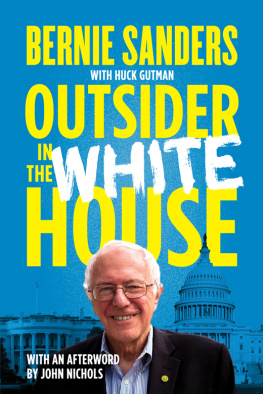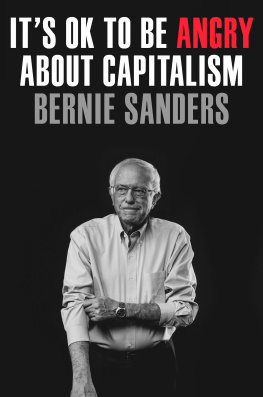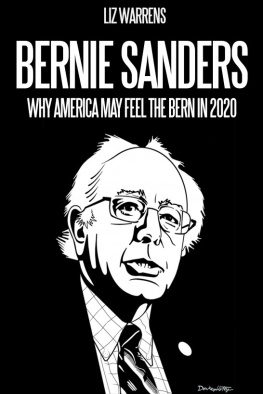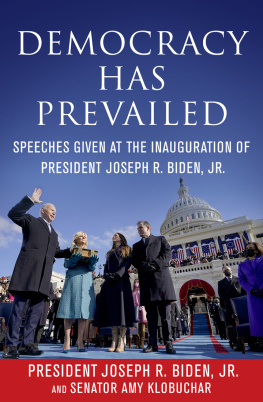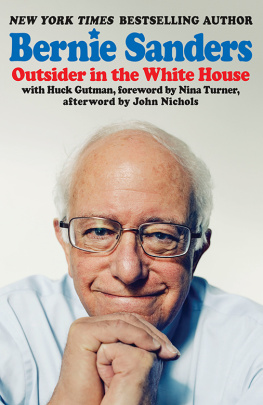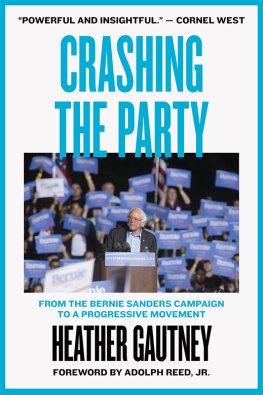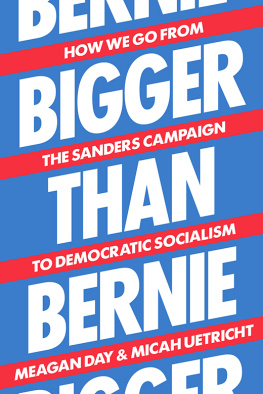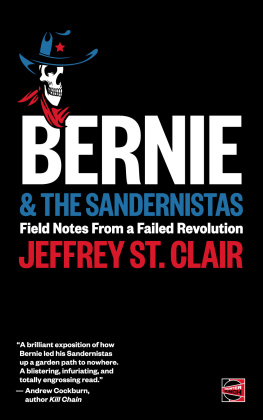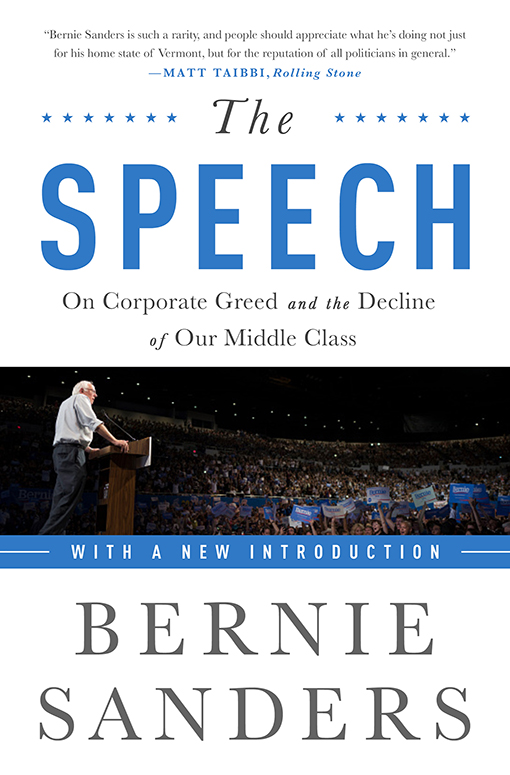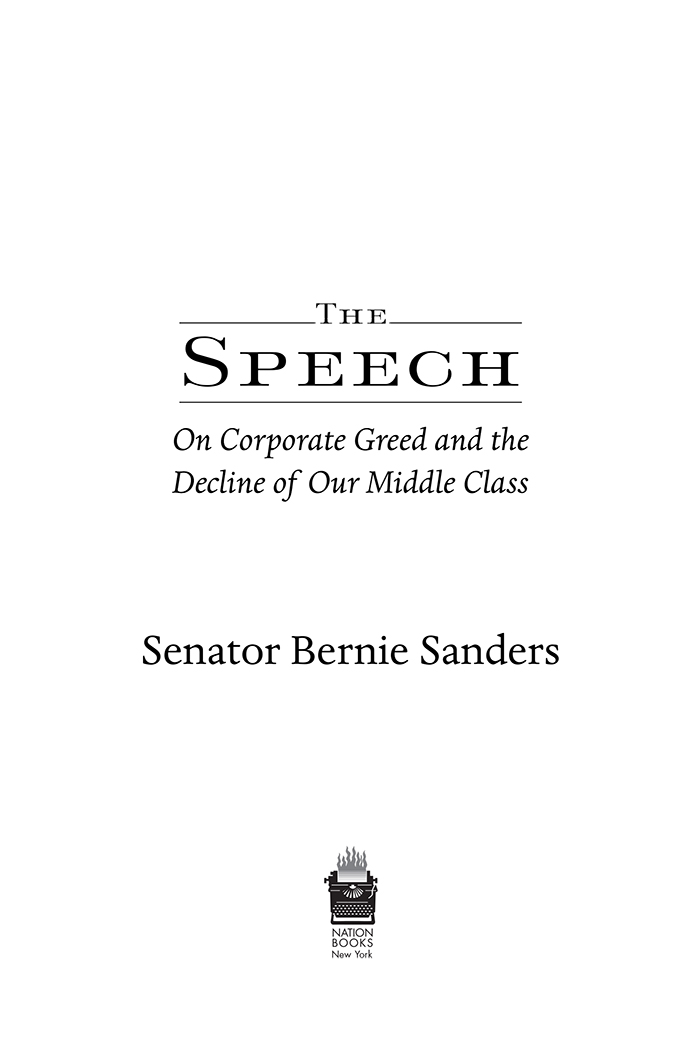Table of Contents
This book is dedicated to my four wonderful children,
Levi, Heather, Carina, and Dave,
and my wonderful grandchildren,
Sunnee, Cole, Ryleigh, Grayson, Ella Jane, and Tess.
May they live long and happy lives in a nation
full of hope, opportunity, prosperity, and security.
No United States Senator accomplishes much without a great staff. And I have one of the best. I want to thank all of those staff members, current and in the past, for the help they have provided me in formulating the ideas that appear in this book.
It is seldom that the men and women who work on the floor of the Senate to transcribe what is said and then type their stenographic notes into the text that becomes the official Congressional Record are recognized for their labors. I wish to recognize them here, and to add that the text of my speech contained in this book differs from the Congressional Record only in that some minor factual errors made during the course of my eight-hour speech have been silently corrected, and a half-dozen transitional words have been added to link sentences that made sense orally but not in the written version.
All authorial proceeds of this book will go to charitable, nonprofit organizations in the State of Vermontmostly relating to the needs of children.
When I formally announced my candidacy for president in my hometown of Burlington, Vermont, more than 5,000 people showed up to cheer us on. Within weeks, we had 10,000 people in Madison, Wisconsin. Then there were 15,000 in Seattle, 28,000 in Portland, 27,000 in Los Angeles. As the summer of 2015 wore on, we attracted the largest crowds of any campaign in the first caucus state of Iowa and the first primary state of New Hampshire.
People are coming out because the very, very rich are getting richer, while the rest of us are getting poorerthey feel the rigged economy every day. They feel it when they open up their bills around the kitchen table, pull items out of their grocery carts, or tell their kids their jackets can last one more winter.
Traveling around the country, I keep hearing the same thing: Americans are fed up with the way things are going. Theyre sick of cuts to social services, and threats to vital programs like Social Security, while their hard-earned tax dollars are pilfered to pay for unnecessary wars and corporate welfare. Theyre sick of working longer hours for lower wages just to line the pockets of the richwho, in turn, are outsourcing their jobs through bad trade deals and undercutting our ability to bargain for fair wages. And theyre sick of corporate greed destroying our political system, as Big Money interests spend unlimited sums of money to elect the candidates of their choice.
In the last two years, 15 people saw a $170 billion increase in their wealth, while 45 million Americans live in poverty. That in my view is not justice. That is a rigged economy, designed by the wealthiest people in this country to benefit the wealthiest people in this country at the expense of everybody else.
And hundreds of thousands of Americans are standing up and demanding change.
What I believe from the bottom of my heart is that I cannot do it alone.
No president can take on Wall Street, corporate America, the corporate media, the Koch brothers, all the Big Money interests, unless theres a mobilized force of millions and millions of people who stand together and demand government work for all of us, not just the wealthiest people in this country.
Weve done this by putting people at the center of our campaignwithout a Super PAC funded by billionaires, bankers, or Big Business. Our movement doesnt represent their interests and we dont want their money. Instead, we have relied on small contributions from working people.
When we started this campaign, I knew we had a message that would resonate with the American people.
It isnt the first time. There was a similar reaction when I gave a long speech on the Senate floor five years ago.
On Friday, December 10, 2010, I woke up at my usual time, had my usual breakfast of oatmeal and coffee at the Dirksen Senate Building, and then had a typical daily discussion with some of my staff. At 10:30 a.m., I walked onto the floor of the Senate and began a speech. It went on for eight and a half hoursuntil 7 p.m.
I had promised to do everything I could to oppose what I believed was a very bad tax agreement pushed by Republicans. At a time when this country had a $14.8 trillion dollar national debt and the most unequal distribution of wealth and income of any major country, it seemed to me totally absurd to provide hundreds of billions in tax breaks for millionaires and billionaires.
I decided to object in the loudest way I knew, by mounting what some referred to as a filibuster but what was, in reality, a long speech on a very important subject. I did not want merely to speak about the agreement, nor even about the politics of compromise and concession. I tried my best to state what I thought to be the essential fact of our times: that the concentration of wealth and power in the hands of a few families, at a time when tens of millions of Americans struggle to get by and tens of millions more Americans are watching the underpinnings of their middle-class lives take repeated hits, is turning our country into a plutocracy.
What does it say about our economy and the political choices we make about it on Capitol Hill that, today, despite all the huge increases in productivity and technology that weve seen in recent decades, a two-income family now has less disposable income than a one-income family did thirty years ago? Why is it that Americans work the longest hours of any people in the industrialized world?
What is the correlation between the United States having, by far, the highest rate of childhood poverty of any major country while we also have more people in jail? Doesnt it make more sense to invest in our kids than in jail construction?
How does it reflect upon our political and legal system when the crooks on Wall Street who caused the horrendous recession now earn more money than they did before their banks were bailed out by the taxpayers? How come none of them are in jail? And what does it mean when three out of the top four too big to fail banks in this country are now larger than they were before the Wall Street collapse, with assets of over half the GDP of the country?
What does it mean to the economic future of our country that were losing factories and millions of good-paying jobs, and that it is harder and harder to buy products manufactured in America? How does it happen that CEOs of large corporations boast about the advantages of outsourcing their production and jobs to China, but when hard times hit, they come running to U.S. taxpayers for a bailout?
And on, and on, and on!
What does it feel like to stand and talk for eight hours when you cant leave the floor, eat, or go to the bathroomand know that a TV camera is on you all that time? Its hard. The aftereffect hit me a few days later when I found myself very, very tired. During the speech itself, my legs began to cramp up a bit. My voice also became very hoarse.
When I walked onto the floor, I had no idea how long I would stay there. When I was mayor of Burlington, Vermont, in the 1980s, I sometimes gave speeches for as long as an hour. That was it. Would I last three hours, five hours, twenty hours? I really didnt know. What I was clear about in my own mind, however, was that I wasnt going to read from the phone book or sing songs just to eat up time. I wanted to speak for as long as I had something relevant to say. While I didnt have a prepared script for the speech, I mostly worked off of previous speeches I had given or articles that I had written and occasionally excerpts from some books I had read. I would read a few lines or pages and go off from there. Twice, colleagues came to the floor and engaged in what we call a colloquy. I remain grateful to senators Sherrod Brown and Mary Landrieu for their support of my effort.


